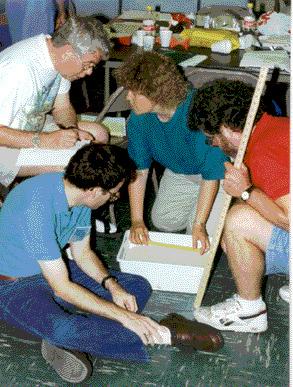
A new study shows that teachers who are familiar with misconceptions about science as well as the science itself have students who are much more successful in learning.
Everybody wants teachers to be knowledgeable, but there is little
agreement on what kinds of knowledge are the most important. Should a teacher have a deep knowledge of the subject matter, or is it better if the teacher has an understanding of what students think? Is there some optimal combination of different types of knowledge? Discussions of such issues rarely make use of data but instead are based on indirect methods of gauging teacher knowledge. The answer is important: Beliefs about teacher knowledge shape both the policies regulating how teachers are prepared, certified, hired, and evaluated as well as programs that provide ongoing professional development for practicing teachers.
CfA scientists and science educators Phil Sadler, Gerhard Sonnert, Harold Coyle, Nancy Cook-Smith, and Jaime Miller have published a study that quantifies several aspects of teacher knowledge and their relevance to teacher effectiveness. The team finds that one key factor in
improving student performance in science understanding is teacher familiarity with the popular science misconceptions. The students of those teachers who both knew the material and understood the reasons for misconceptions improved in their test scores significantly, more than twice as much as students of teachers who only knew the material. The study, which included a sample of 9556 students and 181 teachers, is an important step in evaluating how to train better teachers.
Related News
Michael Foley Elected First Grad Student on AAS Education Committee
CfA Job Shadow Event Makes Astronomy More Accessible
To Navigate the Heavens, Take a Seat
Thousands of New Astronomical Images Highlighted in Latest Release of WorldWide Telescope
Astronomy Educators Awarded $2.8M to Inspire Minority Youth to Pursue STEM Careers
Projects
AstroAI
Factors Influencing College Success in STEM (FICS)
Massive Open Online Courses (MOOCs)
Misconception-Oriented Standards-based Assessment Resources for Teachers (MOSART)
Persistence in STEM (PRiSE)
Sensing the Dynamic Universe
SDU Website